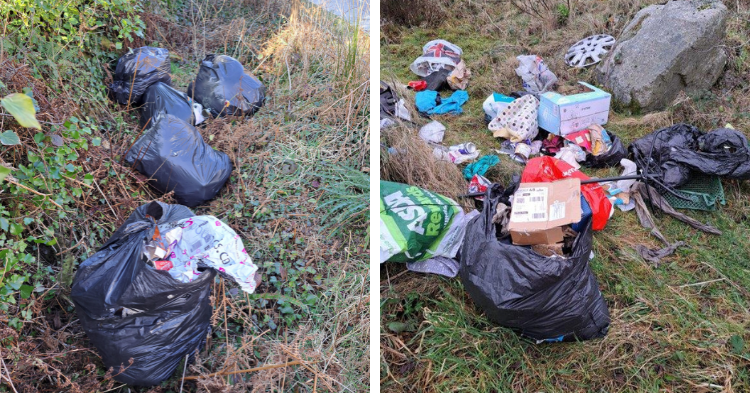Residents and Businesses Warned to Dispose of Waste Responsibly
Cornwall Council has issued a stark warning to residents and businesses after two individuals were penalized for fly-tipping, reinforcing the importance of proper waste disposal. With fines now reaching up to £1,000, the Council is taking a firm stance against illegal dumping.
In recent enforcement actions, two separate offenders received fixed penalty notices for waste-related infractions. One individual was fined £500 after illegally disposing of five black bags of rubbish in Greensplat, St Austell, in February. Another resident faced a £200 penalty when their waste was fly-tipped in St Dennis, St Austell, in January after they paid an unlicensed individual to remove it. The latter case underscores the risks of hiring unauthorized waste carriers, as the resident failed to verify the legitimacy of the service provider.
Both incidents were investigated by Cornwall Council’s Community Protection team, who were able to trace the waste back to its sources thanks to evidence provided by landowners. The Council stressed that fly-tipping is not only unsightly but also costly to clean up and hazardous to both people and wildlife, with the potential to cause long-term environmental damage.
Tougher Penalties Introduced
As of March 1, Cornwall Council has introduced updated fixed-rate penalties to deter fly-tipping. Individuals caught engaging in large-scale fly-tipping or disposing of hazardous materials now face a £1,000 fine, while smaller offences carry a £500 penalty. Repeat offenders and those who refuse to pay the penalties could face prosecution, which can result in unlimited fines, up to five years in prison, and the seizure of vehicles used in the offence.
Councillor Urges Public Vigilance
Councillor Martyn Alvey, portfolio holder for Environment at Cornwall Council, emphasized the seriousness of fly-tipping, saying, “Fly-tipping is totally unacceptable. It endangers people and wildlife, and the clean-up costs are ultimately shouldered by taxpayers and landowners.” He urged the public to report incidents, providing any available evidence, such as CCTV, dashcam, or doorbell camera footage, to help identify culprits.
Businesses are also reminded of their legal obligation to use licensed waste carriers for commercial waste disposal. Likewise, residents hiring waste removal services must ensure they engage licensed carriers to avoid penalties or legal consequences if their waste is dumped illegally.
How to Report Fly-Tipping
Cornwall Council is encouraging residents to report fly-tipped waste via its website and submit any supporting evidence to aid investigations. Businesses can also find guidance on lawful commercial waste disposal on the Council’s website.
With these stricter measures in place, Cornwall Council aims to tackle fly-tipping head-on, ensuring cleaner communities and protecting the environment for future generations.




